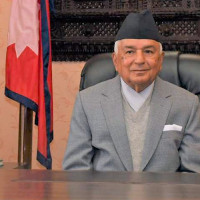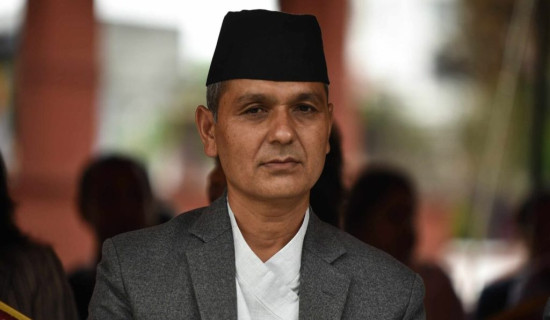- Thursday, 19 February 2026
Urgency Of Bureaucracy Reform
The interim government has rolled back some structural changes made in the top-notch bureaucratic structures during the previous regime. Some of the central agencies that were centralised and inducted under the purview of the Office of the Prime Minister and Council of Ministers (OPMCM) have been reverted back to the home and finance ministries. The agencies that were created under the home and finance ministries vested with mandates to carry out investigation and intelligence services fundamental to the governance and maintenance of law and order in the country, which were centralised in the OPMCM, have been sent back to the respective ministries.
The National Investigation Department shall go back to the Home Ministry, while the Revenue Investigation Department shall go to the Ministry of Finance. In addition, the government has taken more than a dozen decisions to cut the flab of the bloated bureaucracy and slash the wasteful expenditures to save resources to meet public functions, including conducting elections and reconstructing the damaged physical infrastructures in the Gen Z movement. Prominent among the decisions include dissolution of the Squatters Settlement Commission, known for adjusting and employing party functionaries and draining the public resources.
Non-essential seminars
The government decisions are also concerned with halting non-essential seminars, workshops, and trainings, foreign trips, and visits at the expense of the public exchequer. The government has set the number of delegates to join the high-level team to represent the country, requiring that such a team shall not exceed more than ten members at the maximum. The decision comes against the background that the high-level ministerial team in the past included not only the necessary officials to support the leader of the delegation but also a larger number of political functionaries and ministers’ own cronies, swelling the entourage to drain the state coffer.
Other critical decisions as part of the austerity measures comprise the prohibition on the implementation of projects by the user committees exceeding one million rupees. One of the significant changes involves a crackdown on allowances, perks and benefits to public officials. Another decision of the government is to stop hiring employees indiscriminately on a contract basis without assessing the official needs and requirements. Moreover, the government has also decided to scrap redundant agencies whose mandates and functions duplicate those of other agencies. This is also in line with the recommendations of the Public Expenditure Review Committee constituted by the government in the past.
The decisions to streamline government functions and cut wasteful expenditures are not radical enough, as these could also be implemented by the previous governments pledging to institute good governance and administrative efficiency. It is dismaying to note that the previous government failed to enact the Civil Service Law, which became a subject of intractable political controversy. The controversy related to the cooling-off provision stipulated in the Civil Service Bill has been opposed by the senior civil servants, who insist that this provision makes them ineligible and incapacitated to seek any nomination or appointment in the public offices for two years following their retirement and release from the civil service obligations.
In concrete terms, it shall disqualify them from seeking any appointment or nominations in constitutional commissions, ambassadorial assignments, or other top-notch agencies, barring them from utilising their knowledge, insights and experiences gained while serving as civil servants under the tutelage of the government. However, the rationale behind enshrining this provision in the civil service bill has been that civil servants shall be discouraged from using their position as senior civil servants in the government to work at the beck and call of the political masters as an investment in post-retirement rewards.
According to media reports, senior civil servants did allegedly hobnob with powerful politicians and secured appointments in powerful and important constitutional commissions and bodies, such as the election commission, CIAA and ambassadorial assignments in the key countries abroad. In fact, the Civil Service Act should have been enacted immediately after the election held in 2074 B.S in accordance with the federal constitution of Nepal. But this aspect did not receive enough attention from the succeeding governments, as a result of which the implementation of administrative federalism failed to gather speed in the country.
There are worries that bureaucracy has been politicised due to their trade union-type associations affiliated to different political parties, reinforcing their partisan orientation. Another major issue that has always been a bone of contention is the accountability relationship of the civil servants to the three-tier governments – federal, provincial, and local. Today, province and local-level key bureaucrats are administered from the Ministry of Federal Affairs and General Administration without any consultation with and concurrence of the state and local governments in line with the spirit of administrative federalism.
Sub-national capacity
As several functions that used to be planned and implemented at the central level have been constitutionally assigned to the provinces and local governments, sub-national capacity to implement newly devolved functions needs to be enhanced. This capacity can be bolstered only if the adequacy of trained and competent personnel, among others, is provided under the purview of the sub-national government. The top-heavy bureaucratic structures have been kept at the federal level.
Since the constitution limits the number of ministries and departments at the federal level, the size of bureaucracy will have to be thoroughly downsized through a fresh and rationality organization and management survey in line with the principles of subsidiarity. Though structural issues exist to be addressed, the interim government has to begin by acknowledging the malaises affecting bureaucracy and make some of the above-mentioned decisions to rationalise the bureaucratic roles and functions. However, unless the decisions, though not adequate enough, are implemented effectively, it is difficult to produce results on the ground.
(The author is presently associated with Policy Research Institute (PRI) as a senior research fellow. rijalmukti@gmail.com)
















